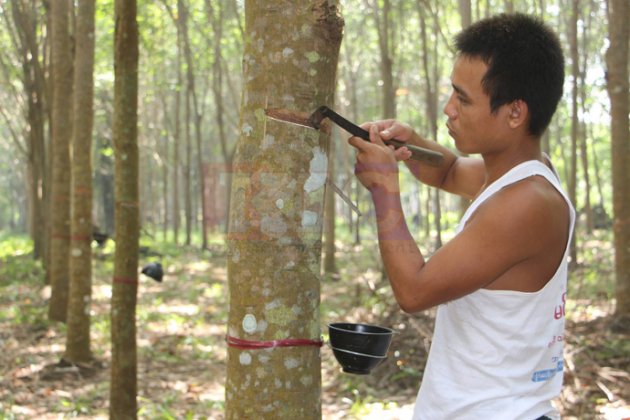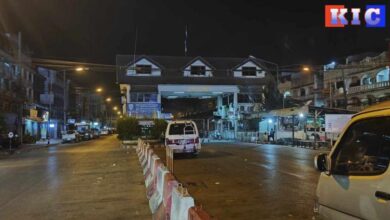Norway and Thai Company to Build Rubber Refinery Factory with Karen Partner in Hpa-an Industrial Zone

A Norwegian and a Thai company have joined with the Karen State Rubber Production Association to build a rubber refinery in the Hpa-an industrial zone.
U Wing Hlaing Oo, head of the Karen State Agricultural Department said that the Norwegian’s Nyor Company, the Thai Southland Company, and the Karen State Rubber Production Association plan to invest in and build the rubber refinery factory in early 2018.
U Win Hlaing Oo told Karen News that the development investment will boost the quality and price of rubber products and at the same time, provide job opportunities.
“It is an invitation for international investment in order to advance our rubber production” U Win Hlaing Oo said. “When we build a factory, and give a set price and quality to farmers, so there will be more income. There will be additional work opportunities such as collecting rubber sap, factory work, and rubber distribution. Laws set by the investment commission need to be followed precisely. At the state level, we will negotiate for the support we will need.”
U Win Hlaing Oo said that the factory will be built at the Hpa-An Industrial Zone 2, where international investment is allowed – the government has warned investors to follow state laws and traditions.
Saw Tin Maung Sein, vice-chairman of the Karen State Rubber Production Association explained to Karen News that building the factory will begin in January 2018.
“We have secured the land but we have not signed the contract with the government yet. We plan to study the factory in Thailand before we sign the contract with the government in November. We will finish construction on the factory within a year. We have already had official discussions with the State government officials.”
Saw Tin Maung said that the refinery factory will be built using technology from the Netherlands and because of the lack of value in low quality rubber, Rss3 and Rss2 rubber plates would be produced to increase the rubber quality and to stabilize the market. Saw Tin Maung added that low quality rubber will be bought at a good price, and the technology to make better rubber quality will be shared within the state.
The current rubber market has the price set at 610 kyat for 1 pound of thick rubber, and 830 kyat for refined rubber plate. According to September’s worldwide pricing, 1 ton of rubber will cost around 1,900 US dollars. A local rubber buying center stated that nationally, prices are 700 kyats for 1 pound of thick rubber, and 940 kyats for refined rubber.
Rubber farmer Saw A Zin, from Kyar In Seik Gyi village, told Karen News that he hopes things will get better for rubber farmers like him when the factory is up and running.
“If they can keep the quality and price, our farmers will receive a good price. Because there is only a small gap between thick rubber plate and refined rubber plate, thick rubber plates are mostly produced to get quick income. We don’t have the financial ability to make better quality rubber, to invest in a rubber grinder, acid, and storage.”
The state rubber association officials said that the rubber stock markets is established in Mawlamyain, Mon State. To control the rubber price and quality, respective government officials are setting rubber laws.
In Burma, there are 1.6 million acres of rubber trees, with 700,000 of them already being used for rubber sap. In Karen State, there are 170,000 acres of rubber trees, with 120,000 of them already producing sap. According to state rubber association’s statistics, 92 percent of the rubber produced is exported internationally.




